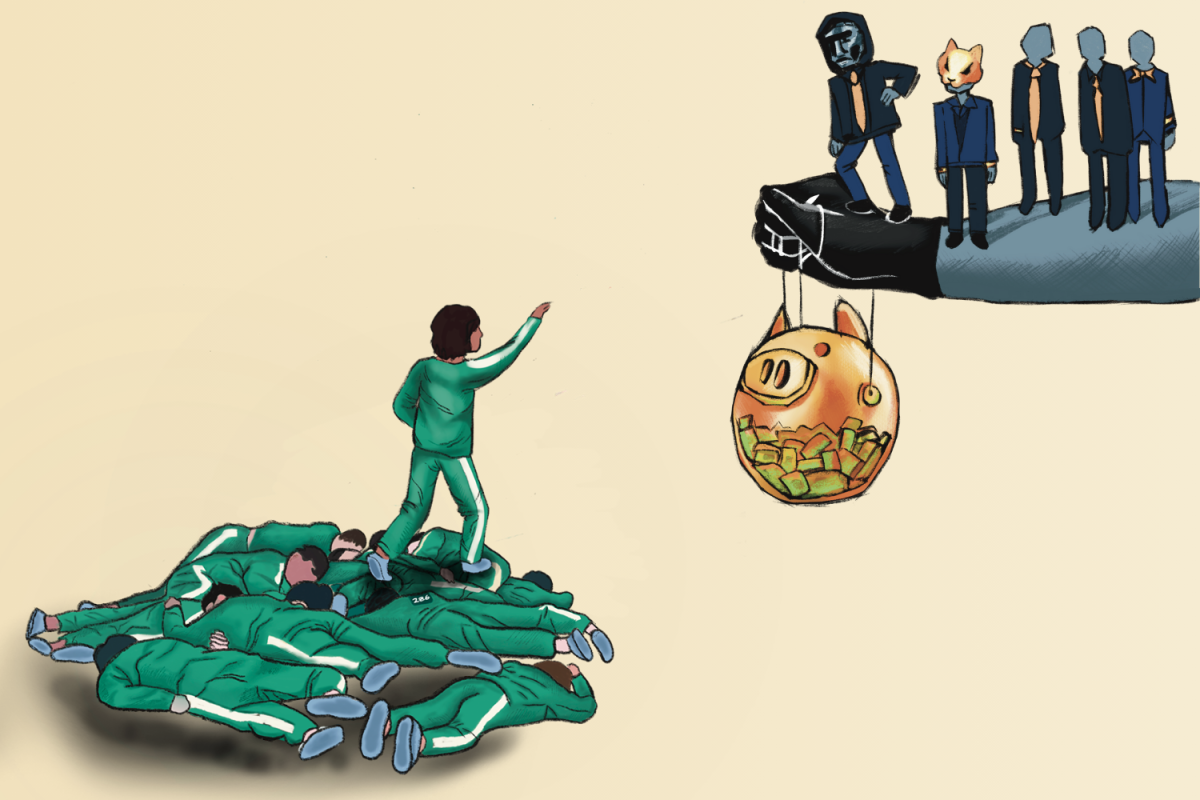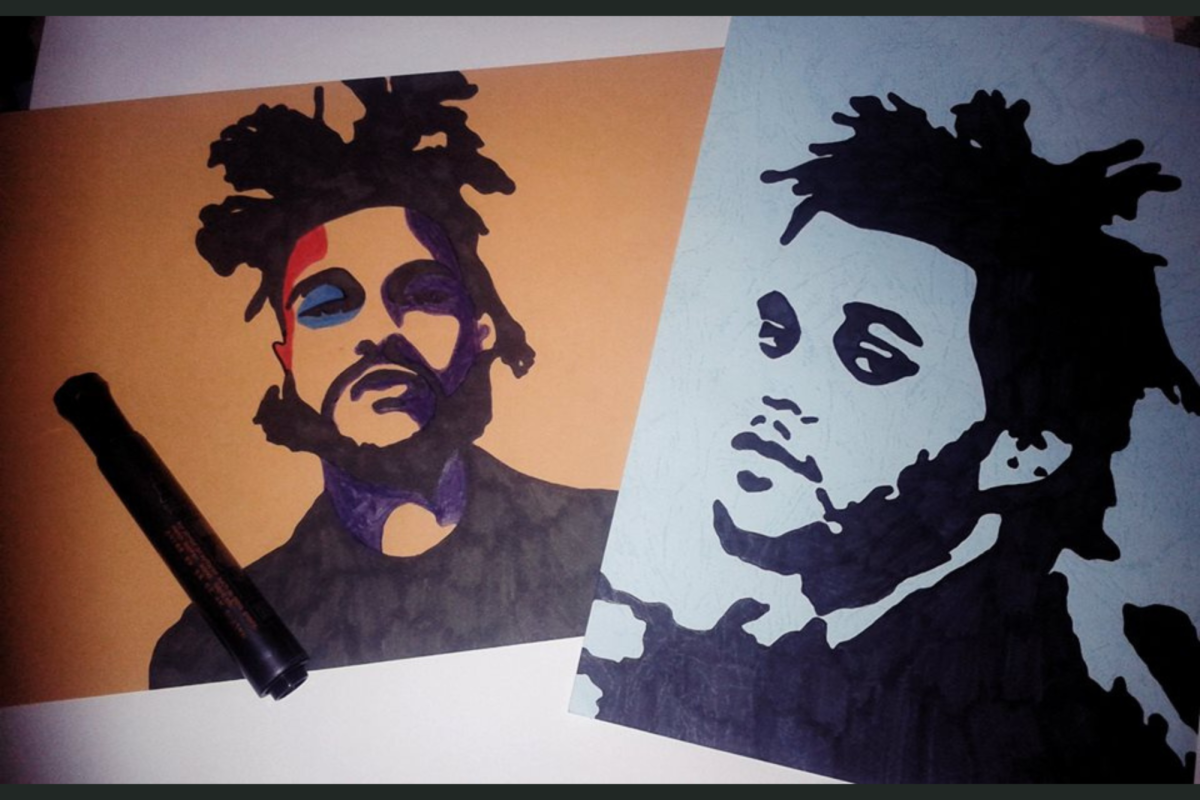In a dystopian society where everyone but the rich struggle, desperation leads people down dark paths. “Squid Game” encapsulates this scenario, telling the story of hundreds of debt-ridden people competing in a gruesome, unforgiving game for a slim chance at a better future. Ever since its inception, the show has risen to international fandom and garnered even more buzz with the recent release of Season 2. “Squid Game” is not just a show meant to portray a messed-up dystopian society where its inhabitants suffer and engage in a rat race to the very bottom; It’s grounded in real-world issues, reflecting a deeper anxiety about the current state of human society and its future. Through each of its characters, “Squid Game” can be seen as a social commentary on the rising wealth gap, human greed and an economy that works for fewer and fewer people.
The show takes place in a modern setting where hundreds of people in South Korea are baited into playing a mysterious game in exchange for a chance at a large sum of prize money. The driving force behind people’s participation in the games is their extremely high debts. Protagonist Seong Gi-Hun, laid off from his job and unable to repay his gambling debts, is in financial ruin. His ex-wife cut off contact with him after he went into debt, taking his daughter with her. At the same time, his mother became terribly ill and required costly hospital treatment, giving Gi-hun every reason to sign up to play in hopes of winning money. Other players live similar nightmares.
“I think the directors centered the show around characters who were at their lowest in order to portray true and inherent human nature,” senior Chloe Chan said. “They were trying to show the desperateness of trying to leave a hopeless situation.”
Although the characters and their life circumstances seem beyond hope, they reflect the real circumstances of today’s middle and lower class, with an increasing number of people unable to dig themselves out of their economic crisis. In the show’s birthplace, South Korea, household debt has risen to over 100 percent of the country’s GDP. Due to the ever-growing cost of living, many people borrow large loans to cover their expenses, leaving them vulnerable to a volatile market. As seen in the show, Gi-hun borrowed hefty amounts of money from dangerous loan sharks that he couldn’t pay back. These growing issues don’t just plague South Korea; they affect the entire world.
Global inflation has risen significantly in recent years, driven by sky-high energy and food prices. The burden of inflation falls on millions of people. According to the United Nations, the global cost of living crisis pushed 71 million people from developing countries into poverty in just three months. Nearly 700 million people worldwide live in extreme poverty, and more and more people find themselves struggling to stay afloat. In California, cost-of-living has gotten so expensive that a six-figure income is considered barely “middle class” in most parts of the state. The Pew Research Center finds that nearly one-third of Californians worry about housing costs and retirement savings daily. Gi-hun’s story is a relatable story for people living in today’s economy, which is why many root for him as the main character. The games, where people compete to the literal death and are forced to give up their morality, represent the desperation that many individuals feel today.
In Season 1, the backstories of a few other players are revealed. Cho Sang-woo, a former investment banker, lost thousands of dollars in the stock market. Kang Sae-Byeok, a North Korean defector, wanted to get her mother out of the North and be able to afford a house for her family. Ali Abdul, a Pakistani migrant worker with a wife and one-year-old son, was denied a paycheck by his boss for six months. All of the characters share something in common: they struggle to keep themselves afloat in a society that doesn’t help them, mirroring how many people in the real world are no longer able to financially sustain themselves. In the end, their only option is to turn to a ruthless game that ultimately kills them. This “survival of the fittest” mentality plays out in today’s society, with few people succeeding economically while everyone else is left behind in ruin. Oxfam finds that the richest 1% earn nearly twice as much wealth as the rest of the world put together over the past two years.
Oblivious to the players, their brutal competition is broadcast to wealthy people, known as the VIPs. The VIPs, exclusive clients of the Front Man — the man who oversees the operation of the games —, help fund the games. They bet on the players and find humor in their deaths, merely viewing the players as commodities and tools of entertainment. While the VIPs live a life of extravagance and privilege, the players are forced to endure hopeless and unbearable circumstances. Through this juxtaposition, the show comments on the growing divide between the rich and the poor. According to the World Inequality Database in 2024, the poorest 50% of the population consistently lags behind the top 10% in every region of the world in share of national income. In the United States, almost two-thirds of total wealth in the US was owned by the top 10% of earners. Meanwhile, the lowest 50% of earners merely owned 2.5% of the total wealth.
Today’s billionaires, similar to the VIPs and those in control of the games, possess an exponentially greater amount of resources and wealth than those in the middle or bottom of society, and the gap is only growing.
“It’s a critique on how the rich unfairly exploit the poor,” junior Arnav Thota said. “The VIPs obviously have a lot of power and influence, and their actions are at the expense of people’s lives.”





























































